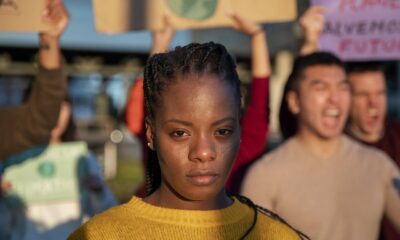SOCIAL AWARENESS
Readings for Diversity and Social Justice

Diversity and social justice have become essential discussions in education, workplaces, and community activism. Literature plays a crucial role in shaping these conversations, helping individuals understand oppression, privilege, and the pathways toward equity. Readings for diversity and social justice offer profound insights into systemic inequalities and empower readers to become advocates for change.
This article explores essential texts that address race, gender, class, disability, and LGBTQ+ rights, highlighting their impact on fostering inclusivity. Whether you’re an educator, activist, or curious reader, these resources provide invaluable perspectives on creating a more just society.
The Role of Literature in Social Justice Movements
Throughout history, literature has served as a powerful tool for social change. Books, essays, and articles challenge societal norms, educate individuals, and inspire activism. From the abolitionist writings of Frederick Douglass to modern-day critiques of systemic racism, readings for diversity and social justice shape how society addresses inequality.
Key roles literature plays in social justice movements include:
- Raising Awareness: Books expose readers to different lived experiences, fostering empathy and understanding.
- Educating the Public: Well-researched texts provide historical context on discrimination and activism.
- Inspiring Action: Powerful narratives motivate readers to engage in advocacy and policy change.
- Building Community: Shared readings create dialogue and collective action among groups fighting for justice.
Essential Readings for Racial Justice
1. “The New Jim Crow” by Michelle Alexander
This groundbreaking book examines mass incarceration in the United States as a modern form of racial discrimination. Alexander argues that the criminal justice system disproportionately targets Black communities, perpetuating systemic racism.
2. “How to Be an Antiracist” by Ibram X. Kendi
Kendi challenges readers to go beyond being “not racist” and actively work against racist policies. This book combines personal narrative with historical analysis, offering a roadmap to dismantling racism.
3. “Between the World and Me” by Ta-Nehisi Coates
Written as a letter to his teenage son, Coates explores what it means to be Black in America. His reflections on history, systemic oppression, and the Black experience are both personal and universally significant.
4. “White Fragility” by Robin DiAngelo
DiAngelo examines how white people react defensively to conversations about race, preventing meaningful discussions about racism. This book is a valuable resource for individuals seeking to engage in honest dialogue about privilege.
Gender and Feminist Readings for Social Justice
1. “Feminism is for Everybody” by bell hooks
A concise yet powerful introduction to feminism, bell hooks explains how feminist thought benefits people of all genders. She emphasizes intersectionality and inclusivity in feminist activism.
2. “We Should All Be Feminists” by Chimamanda Ngozi Adichie
Based on her TED Talk, this book is an accessible exploration of why gender equality is essential. Adichie shares personal stories and reflections on feminism in modern society.
3. “The Gender Knot” by Allan G. Johnson
This book critically examines patriarchal structures and their impact on both men and women. Johnson provides solutions for dismantling gender-based oppression.
4. “Sister Outsider” by Audre Lorde
A collection of essays and speeches, Lorde explores race, gender, and sexuality with unmatched clarity. Her work remains a cornerstone of feminist and queer theory.
Readings on Class and Economic Justice
1. “Nickel and Dimed” by Barbara Ehrenreich
Ehrenreich investigates the struggles of low-wage workers in America by working in minimum-wage jobs herself. Her firsthand account exposes the realities of economic inequality.
2. “Evicted” by Matthew Desmond
Desmond documents the housing crisis in America through the lives of eight families facing eviction. This book highlights how poverty and housing instability are deeply interconnected.
3. “A People’s History of the United States” by Howard Zinn
This book presents an alternative history of the U.S., focusing on the experiences of marginalized groups rather than elite figures. It challenges traditional narratives and encourages critical thinking about class struggles.
LGBTQ+ Readings for Social Justice
1. “Stonewall” by Martin Duberman
A comprehensive history of the Stonewall Riots, this book provides context for the modern LGBTQ+ rights movement.
2. “Gender Trouble” by Judith Butler
Butler’s work is foundational in queer theory, challenging binary gender norms and exploring the concept of gender performativity.
3. “Redefining Realness” by Janet Mock
A powerful memoir by a trans woman of color, Mock’s book sheds light on the challenges and triumphs of being transgender in America.
4. “Queer: A Graphic History” by Meg-John Barker
This illustrated book breaks down complex LGBTQ+ concepts, making them accessible to a broad audience.
Disability Justice and Inclusion Readings
1. “Disability Visibility” edited by Alice Wong
A collection of essays by disabled activists, this book highlights the diverse experiences of people with disabilities.
2. “Being Heumann” by Judith Heumann
A memoir by a pioneering disability rights activist, this book tells the story of Heumann’s fight for accessibility and equality.
3. “No Pity” by Joseph P. Shapiro
An essential history of the disability rights movement, Shapiro examines the fight for legal protections and societal inclusion.
4. “Care Work” by Leah Lakshmi Piepzna-Samarasinha
This book explores the intersection of disability justice and activism, advocating for community-based care models.
How to Engage with Readings for Diversity and Social Justice
- Join Book Clubs & Discussions: Engaging with others deepens understanding and fosters dialogue.
- Apply Knowledge to Advocacy: Reading is just the first step—use insights to challenge injustice.
- Teach & Share Resources: Spread awareness by integrating these readings into education and community discussions.
- Support Diverse Authors: Purchase books from marginalized writers to amplify their voices.
Conclusion
Reading is a transformative act that fosters awareness, empathy, and action. Readings for diversity and social justice challenge societal norms, educate individuals, and inspire change. Whether through racial justice literature, feminist writings, or LGBTQ+ memoirs, these books serve as catalysts for a more just and equitable world. By engaging with these texts and applying their lessons, readers contribute to a future built on understanding, inclusion, and advocacy.
FAQs
Why are readings for diversity and social justice important?
They provide historical context, challenge biases, and empower individuals to advocate for a more inclusive society.
How can I choose the right book for my social justice journey?
Identify topics you’re passionate about (race, gender, class, LGBTQ+, disability) and start with an accessible, well-reviewed book.
Can these readings be used in educational settings?
Absolutely! Many of these books are incorporated into high school and college curricula to foster critical thinking and discussions on equity.
Are there readings for children on social justice?
Yes! Books like “Something Happened in Our Town” and “Antiracist Baby” introduce social justice themes to younger audiences.
How do these books inspire real-world change?
They inform and equip readers with knowledge, inspiring activism, policy change, and meaningful conversations about equity.
Where can I access these books affordably?
Libraries, secondhand bookstores, and digital platforms like Kindle Unlimited offer many of these titles at low or no cost.
-

 HUMAN RIGHTS4 weeks ago
HUMAN RIGHTS4 weeks agoMercy Ships Scandal: Unraveling the Truth Behind the Allegations
-

 SOCIAL AWARENESS3 weeks ago
SOCIAL AWARENESS3 weeks agoIs Helping Hands Legit? Unveiling the Truth Behind This Organization
-

 HUMAN RIGHTS2 months ago
HUMAN RIGHTS2 months agoHuman Rights Issues: Challenges and Progress in a Globalized World
-

 SOCIAL AWARENESS1 month ago
SOCIAL AWARENESS1 month agoPlasma Donation in Mesa AZ – Save Lives & Earn Rewards
